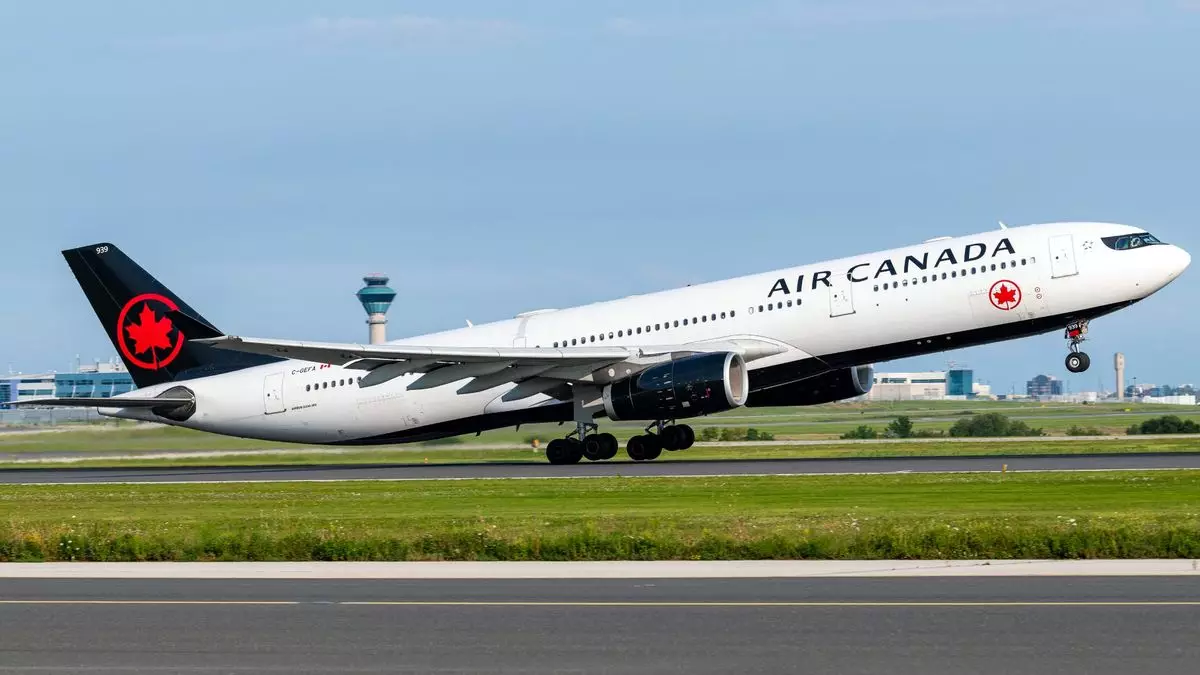The recent strike by Air Canada’s flight attendants was more than a labor dispute; it was a wake-up call for an industry that often operates under the weight of operational fragility. While at first glance, labor strikes symbolize conflict, they also illuminate underlying issues within an organization—issues that, if addressed with transparency and strategic foresight, can lead to meaningful reform. Air Canada’s eventual agreement and the phased restart are not just about restoring flights but about reimagining how airlines can evolve in turbulent times.
The airline industry has faced relentless pressure to balance profitability with employee well-being. This incident underscored the precariousness of neglecting workforce concerns, revealing that ignoring labor rights can jeopardize a company’s reputation and operational credibility. Through their steadfast stand, the flight attendants have shown that empowered workers are not obstacles but catalysts for future stability. Their fight for unpaid work to be recognized and compensated is a call for airlines to revisit employee engagement strategies genuinely.
This crisis presents an invaluable opportunity for Air Canada to redefine its relationship with its staff, fostering a culture rooted in fairness, respect, and mutual growth. The resolution achieved through negotiation and mediation highlights that collaborative problem-solving can turn adversarial situations into platforms for proactive change. Such a turnaround has profound implications: it signals to industry peers that healthily managing labor relations can be a strategic advantage rather than a mere legal obligation.
Strategic Recovery and the Future of Passenger Trust
Restoring flight operations after a disruptive strike is a logistical feat that tests an airline’s operational resilience. Air Canada’s cautious approach—setting a 7 to 10-day window for full resumption—reflects an understanding that recovery is not solely about flight schedules, but about rebuilding passenger confidence. Travelers, especially during the busy summer season, seek reassurance that airlines are not only operational but are also transparent and committed to their customers’ experience.
The ripple effect of cancellations and delays extends beyond immediate inconvenience. It challenges airlines to rethink their crisis management frameworks and communication strategies. Air Canada’s decision to deploy additional staff at major hubs and offer flexible refund policies demonstrates a strategic move toward customer-centric recovery. In an era where social media amplifies every customer grievance, transparency and quick responsiveness are no longer optional—they are essential for safeguarding a brand’s integrity.
Moreover, the incident underscores the importance of diversifying operational risk management. Strikes, transportation disruptions, and regulatory interventions are part of the industry landscape. Airlines that view these challenges as opportunities to improve internal processes—particularly in labor relations and customer communication—can emerge stronger, more adaptable, and better aligned with modern expectations.
Lessons for the Aviation Sector and Broader Implications
This episode serves as a potent reminder that the aviation sector must evolve beyond traditional paradigms. The use of government-mandated arbitration and legal rulings against strikes point to a broader issue: the need for sustainable, open dialogue between management, employees, and regulators. Relying solely on legal measures can breed adversarial attitudes and diminish long-term loyalty.
For Air Canada, this moment is a catalyst to implement structural changes that prioritize workforce satisfaction—perhaps through enhanced benefits, clearer career pathways, or more inclusive governance practices. These steps not only prevent future disruptions but also foster a resilient organizational culture that values its human capital as a core asset.
Furthermore, this incident exemplifies the importance of strategic patience and adaptive planning. The airline’s preliminary cautious approach in resuming services reflects a deeper understanding that recovery is multifaceted. It’s about rebuilding operational integrity, reaffirming customer trust, and honoring the commitments made to staff.
Ultimately, the resilience displayed by Air Canada amid upheaval is an affirmation that the airline industry must embrace transparency, collaboration, and innovation. The future of air travel hinges on the ability of carriers to learn from setbacks, adapt swiftly, and build relationships rooted in fairness. This upheaval, if approached thoughtfully, can serve as a turning point—ushering in an era where airlines demonstrate strength not just through connectivity, but through integrity and foresight.


Leave a Reply